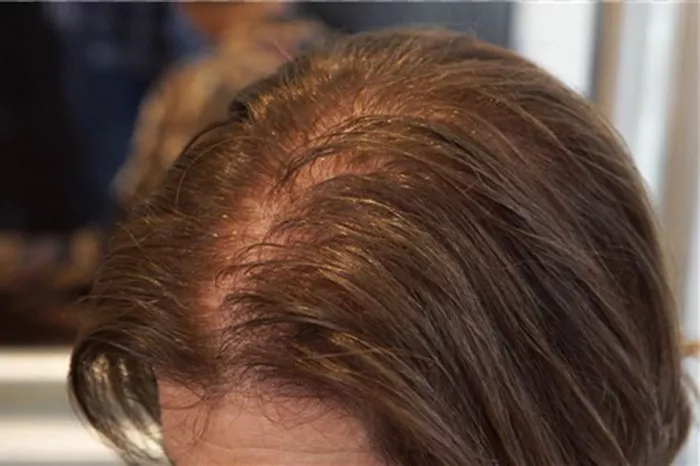If you’re a woman approaching or already experiencing menopause, you may have noticed changes in your body, including your hair. The concern about hair thinning and potential hair loss is a common one during this phase of life. In this comprehensive article, we will explore the question, “Will my hair grow back after menopause?” and provide valuable insights and tips for maintaining healthy hair as you age.
The Impact of Menopause on Hair Health
During menopause, your body undergoes significant hormonal shifts. A decrease in estrogen levels, which typically occurs during menopause, can affect the hair growth cycle. Estrogen is known to promote hair growth and maintain its thickness, so its decline may lead to changes in your hair’s appearance.
Understanding Hair Growth Cycles
To comprehend whether your hair will grow back after menopause, it’s essential to understand the natural hair growth cycle. Hair goes through three phases: anagen (growth phase), catagen (transitional phase), and telogen (resting phase). Hormonal changes during menopause can disrupt this cycle, leading to hair thinning and potential hair loss.
Strategies for Hair Regrowth After Menopause
Here are strategies for hair regrowth after menopause:
1. Balanced Diet and Nutritional Supplements
Maintaining a balanced diet rich in vitamins and minerals is crucial for hair health. Incorporate foods high in biotin, vitamin D, and omega-3 fatty acids into your meals. Additionally, consider taking nutritional supplements tailored to support hair growth, as recommended by your healthcare provider.
2. Topical Treatments and Hair Care Products
Explore topical treatments and hair care products that promote hair regrowth. Look for products containing minoxidil, an FDA-approved ingredient known to stimulate hair follicles. Consult a dermatologist to determine the most suitable products for your specific needs.
3. Laser Therapy
Laser therapy devices, such as low-level laser therapy (LLLT) caps, can help stimulate hair follicles and promote hair growth. These non-invasive devices are designed for home use and may be a viable option for women seeking to improve hair density.
4. Hormone Replacement Therapy (HRT)
Discuss hormone replacement therapy (HRT) with your healthcare provider. HRT can help balance hormone levels and potentially mitigate hair loss associated with menopause. However, it’s essential to weigh the benefits and risks with your doctor.
Lifestyle Factors and Hair Regrowth
Here’s how lifestyle factors are related to hair regrowth:
1. Stress Management
Chronic stress can exacerbate hair loss. Practicing stress-reduction techniques like meditation, yoga, and deep breathing exercises can contribute to overall well-being and potentially aid in hair regrowth.
2. Regular Exercise
Engaging in regular physical activity improves blood circulation, which can benefit hair follicles. Aim for at least 30 minutes of moderate exercise most days of the week.
3. Avoiding Harsh Styling Practices
Avoid excessive heat styling, tight hairstyles, and chemical treatments, as they can damage your hair and hinder regrowth. Be gentle with your hair to minimize breakage and promote healthy growth.
Consultation with a Specialist
If you’re concerned about hair loss during or after menopause, consult with a dermatologist or trichologist. They can provide personalized guidance, perform hair evaluations, and recommend treatments tailored to your needs.
See Also: How to Stop Hair Loss After Accutane: Strategies & Solutions
In conclusion
While menopause can bring about changes in hair health, it’s not the end of the road for regrowth. With the right strategies, including a healthy lifestyle, proper nutrition, and potential medical interventions, you can improve your chances of seeing your hair grow back after menopause. Remember to consult with healthcare professionals to determine the best approach for your unique situation. Your journey to healthier, more abundant hair begins with informed choices and patience.


